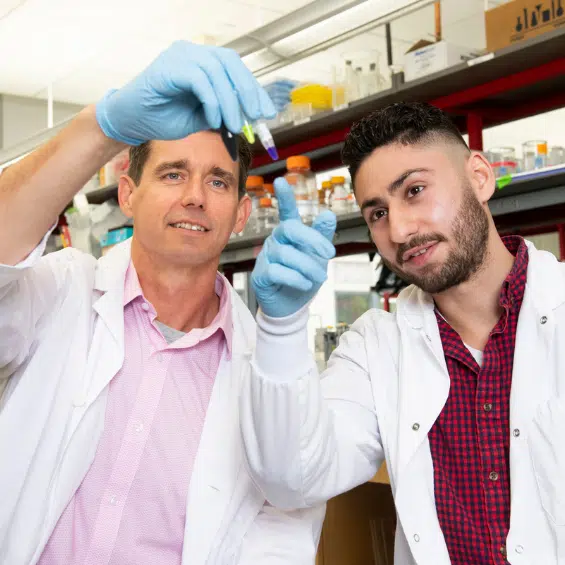EPILEPSY RESEARCH GRANT OPPORTUNITIES
CURE Epilepsy awards grants for novel research projects that address finding the cures for epilepsy and address the goal of “no seizures, no side-effects.”
Scientific Advisory Council (SAC) members may not apply for funding from or participate in grant funding recommendations for CURE Epilepsy while serving on the SAC.

Taking Flight Award
-
Overview
The Taking Flight Award (1.5 years / $125,000) seeks to promote the careers of early-career investigators to allow them to develop an independent research focus.
-
Eligibility
You must fall into one of the following categories to be eligible for the Taking Flight Award:
-
A postdoctoral fellow with a PhD, PsyD, PharmD, or equivalent and a minimum of two years postdoctoral experience at the time of submission. Applicants must submit a letter of support from their direct supervisor/mentor. For applicants with less than three years of post-doctoral experience, this letter must include a statement from the mentor, clearly articulating a plan to guide the applicant through the project, helping them develop an independent research focus, and encouraging them to think independently and strategically.
-
A researcher with an appointment as an Instructor or Research Assistant Professor who has yet to obtain significant funding (e.g., RO1 grant or equivalent) and has an on-site mentor committed to advising the applicant.
-
A faculty member at the assistant professor level who is within one year of having been appointed.
-
Clinician-researchers who are within two years of their faculty appointment.
-
A clinical fellow who is pursuing a residency in the following areas: neurology, neurosurgery or neurocritical care, and considering an epilepsy-focused fellowship.
International applicants are welcome; you do not have to be a US citizen or working in the US to apply for this award. All materials must be submitted in English.
-
-
Budget
Requests may be made for up to $125,000 for eighteen months. Funding requests may include salary support for the PI, technical staff and/or collaborators; supplies, animal costs, publication fees etc.; and travel to an epilepsy-related conference if the PI is presenting his/her CURE Epilepsy-funded research. Funds are not to be used to purchase equipment. Indirect costs are not supported.
-
Key Activities and Dates
Activity Approximate Date Open Call for Letters of Intent Monday, November 24, 2025 Letter of Intent Deadline Tuesday, January 6, 2026 Full Proposal Invitations Tuesday, February 17, 2026 Full Proposal Deadline Tuesday, March 24, 2026 Anticipated Award Notification End of July 2026 Anticipated Project Start Date Tuesday, September 1, 2026
Rare Epilepsy Partnership Award
-
Overview
The Rare Epilepsy Partnership Award (1 year / $100,000) will support the development of necessary research tools, techniques, model systems, and data collection platforms to stimulate and accelerate research on rare epilepsies. Each award will be co-funded by CURE Epilepsy and one or more of the rare epilepsy advocacy groups (partners) identified in the Request For Proposals. Applications must focus on one or more of the specific rare epilepsies that are represented by each group as well as address CURE Epilepsy’s mission to cure epilepsy.
FOR RESEARCHERS:
FOR PARTNER GROUPS:
-
Eligibility
FOR RESEARCHERS:
This award is available to both established and early-career investigators. Early career investigators must have a mentor committed to advising the applicant. A clearly articulated mentorship statement from the mentor must be submitted along with the application. See RFP for details.
FOR PARTNER GROUPS:
CURE Epilepsy will prioritize potential partners that a) do not already have grant funding and management capabilities, b) have a scientific advisor(s) to consult on research priorities, c) can provide three specific research priorities, d) can nominate at least one person to participate in the grant development and review process and e) have available or demonstrate the potential to raise $55,000. CURE Epilepsy encourages all interested partners to apply but will prioritize those that we did not partner with in previous years.
-
Budget
FOR RESEARCHERS:
Funding requests must be itemized and based on specific, milestone-defined scientific aims. Requests may be made for up to a maximum of $100,000 paid over 1 year. CURE Epilepsy reserves the right to fund only select specific aims or stage funding of proposals based on the achievement of milestones. Budgets may include salary support for the Principal Investigator (PI), technical staff and/or co-PIs, supplies, animal costs, vendor costs, limited equipment cost, and travel to an epilepsy-related conference only if the PI is presenting his/her CURE Epilepsy-funded research. Indirect costs are not supported.
FOR PARTNER GROUPS:
Partner organizations contribute $55,000 to a funded grant specific to their rare epilepsy ($50,000 in grant funding, $5,000 in administrative costs).
-
Key Activities and Dates
FOR RESEARCHERS:
Activity Approximate Date Request for Proposals Opens Tuesday, May 12, 2026 Letter of Intent Deadline Tuesday, June 9, 2026 Full Application Invitations Monday, July 27, 2026 Full Application Deadline Tuesday, September 1, 2026 Anticipated Awardee Notification December 2026 Anticipated Project Start Date Spring 2027 FOR PARTNER GROUPS:
Activity Approximate Date Registration Form Released to Rare Groups Tuesday, January 16, 2026 Partnership Registration Form Due Tuesday, February 17, 2026 Groups Are Informed of Selection Friday, February 27, 2026

GRANT PROCESS
1. VISION SETTING
CURE Epilepsy’s research vision is set by the CURE Epilepsy Board of Directors, Scientific Advisory Council, and CURE Epilepsy Research Team.
2. REQUEST FOR PROPOSAL (RFP)
RFPs are born out of CURE Epilepsy’s Strategic Vision and outline the research topic areas and requirements for the grant year.
3. LETTER OF INTENT
LOIs are short letters from potential CURE Epilepsy grantees that succinctly and clearly describe their proposed research project and its relevance to CURE Epilepsy’s mission.
4. LOI REVIEW
LOIs are reviewed and scored by the Research Team and scientific peers by criteria outlined in the RFPs.
5. FULL PROPOSAL STAGE
Applicants whose LOIs are invited will submit full grant proposals that contain detailed scientific and budget information for the proposed CURE Epilepsy project.
6. FULL PROPOSAL REVIEW
Each full grant proposal is reviewed by three external scientific reviewers and a person with lived experience of epilepsy. People with lived experience ensure that the stakeholder point of view is critically represented in the grant review process.
Scientific reviewers are assembled for each grant mechanism and each grant review cycle. Applications are then discussed amongst the reviewers and CURE Epilepsy Research Team and scored.
7. RESEARCH COMMITTEE REVIEW
Applications are discussed with the CURE Epilepsy Research Committee, which is made up of CURE Epilepsy Board members and volunteers, to ensure alignment with CURE Epilepsy’s mission. Funding recommendations are then developed and presented to the CURE Epilepsy Board of Directors.
8. BOARD OF DIRECTORS APPROVAL
The CURE Epilepsy Board of Directors has final approval of all grants that are funded by CURE Epilepsy each cycle.









